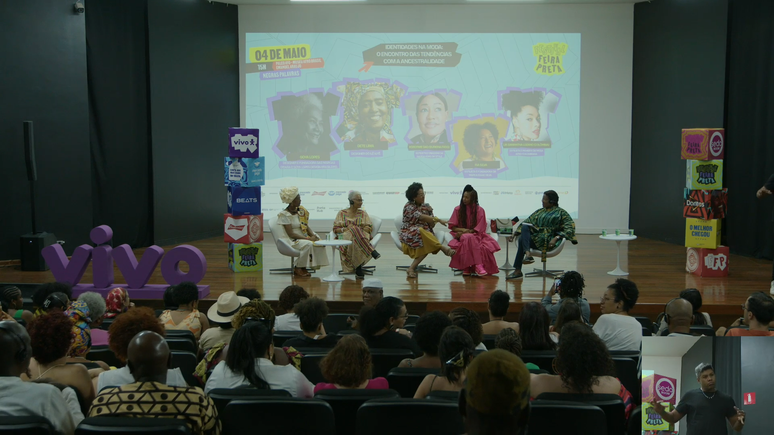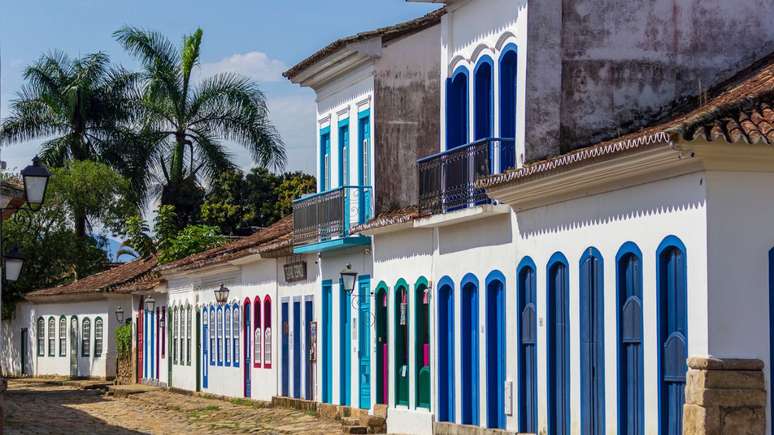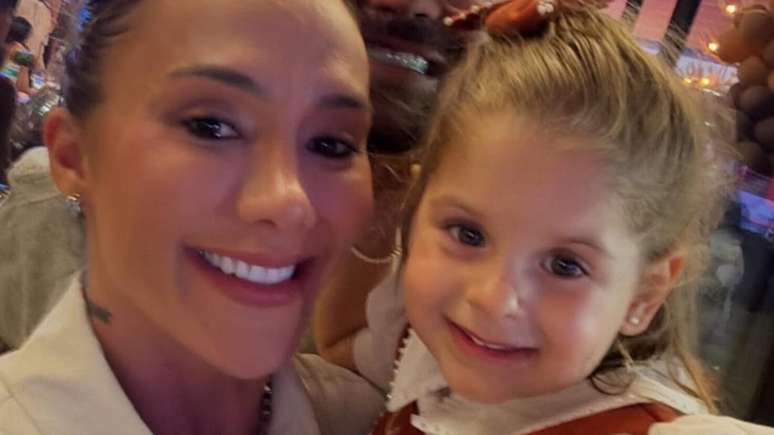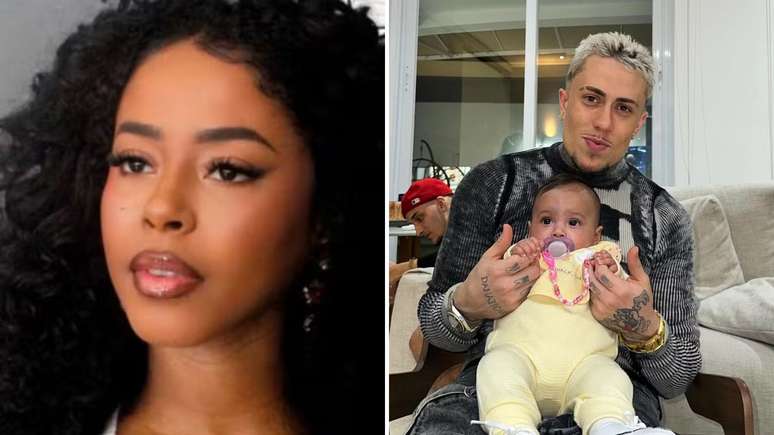The event celebrating black culture takes place in Ibirapuera Park, SP, and has Terra as its official media partner
The Ayo Stage of the Feira Preta Festival, the largest festival of black culture and the creative economy in Latin America, received this Saturday (04), among other guests, the conference “Identities in Fashion: The Meeting of Trends with Ancestry”, which brought together a group of women responsible for spreading Afro-Brazilian fashion around the world.
To tell their stories and how fashion entered their lives, the conference invited Goya Lopes (founder of Goya Lopes Design Brasileiro), Dete Lima (stylist at Ilê Aiyê), Lia Samantha Lozano (stylist and pioneer of Afro-American fashion Colombian) and Korotimi DAO (Burkina Faso).
The chat mediated by Isa Silva (stylist and owner of Isaac Silva) began with the story of Dete, who told how seeing her mother wear Candomblé orixás introduced her to the world of Afro fashion. With the emergence of the Ilê Aiyê block, which celebrated 50 years of history and was honored at this year’s Salvador Carnival, the designer saw her dream gain traction.
“I was able to bring to life everything I dreamed of as a child. Ilê Aiyê gave me a ruler and a compass so that I can get here today doing transformative work helping Black women’s self-esteem. Today I am grateful to all the black women, if I am here and I managed to transform it, it is because I have always had black women to give life to these crowns,” said Dete, referring to the classical arts she creates on turbans for black women in El Salvador .
Goya Lopes, who won a scholarship to study design in Italy in 1977, said he pursued what they called the “profession of the future.” Being a black woman from the Northeast in a profession dominated by white men attracted the artist’s attention to develop her uniqueness in the field.
“At that time, in the 1970s, a movement called ‘Brazilianity’ took place mainly in São Paulo, where designers looked to indigenous and popular culture, flora and fauna. I thought something was missing, the Afro culture [estava] Invisible. I returned to Salvador and started a project to promote Afro-Brazilian culture as art, class, telling its story. I thought of fashion as a support, because fashion is transversal”, says the designer.
For Colombian Lia Samantha, daughter and granddaughter of seamstresses, hip-hop was what gave her the foundation to inspire and dress the country’s women, being a pioneer of Afro-Colombian fashion.
“At 15, I developed my own costumes for the hip-hop shows I went to with my cousin and started drawing with references to African-American women, since I had no references in Colombia,” she recalls.
When she least expected it, Lia noticed several girls dressing like her and developed a brand inspired by hip-hop style clothing. 10 years ago, after researching everything she did, she found African fabrics that changed her story. She was asked to dress the 27 Miss Colombia candidates and she saw the turban become popular in the country.
Korotimi DAO, born in Burkina Faso, a West African country, reiterated that being born in the country with one of the largest cotton cultivations and productions was essential to develop his brand, which is now in every Burkinabé’s closet.
“Our fashion has established itself as official clothing in our country, everyone has our brand in their wardrobe. We have received support from politicians to train more designers who want to learn to weave cotton. We want to develop our fashion on a large scale so that everyone can wear our brand’s cotton garments,” said the designer.
With the theme “Being happy is our revolution”, the largest black culture event in Latin America – which used to take place every year in November, Black Awareness Month – continues on May 5th and in a new location: at the Parque do Ibirapuera, in Sao Paulo. . Terra continues to be the official media partner of the event, expanding the visibility and voice of black people in an exclusive online broadcast on the portal.
The Festival
Founded in 2002, the Feira Preta Festival was created to sell products and services from black entrepreneurs. In these 21 years, more than 250 thousand people, 7 thousand artists, 3 thousand entrepreneurs from Brazil and other Latin American countries have participated in the event. In the online format, in 2020 and 2021, views were more than 65 million. In total, with the sale of products and services by African entrepreneurs, the Festival directly generated more than R$15 million.
Source: Terra
Ben Stock is a lifestyle journalist and author at Gossipify. He writes about topics such as health, wellness, travel, food and home decor. He provides practical advice and inspiration to improve well-being, keeps readers up to date with latest lifestyle news and trends, known for his engaging writing style, in-depth analysis and unique perspectives.









